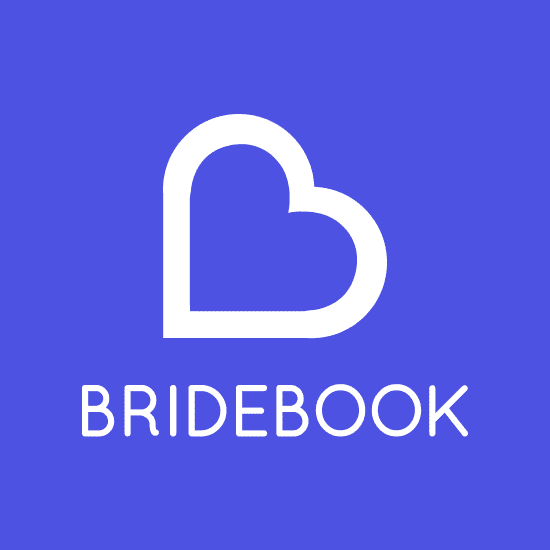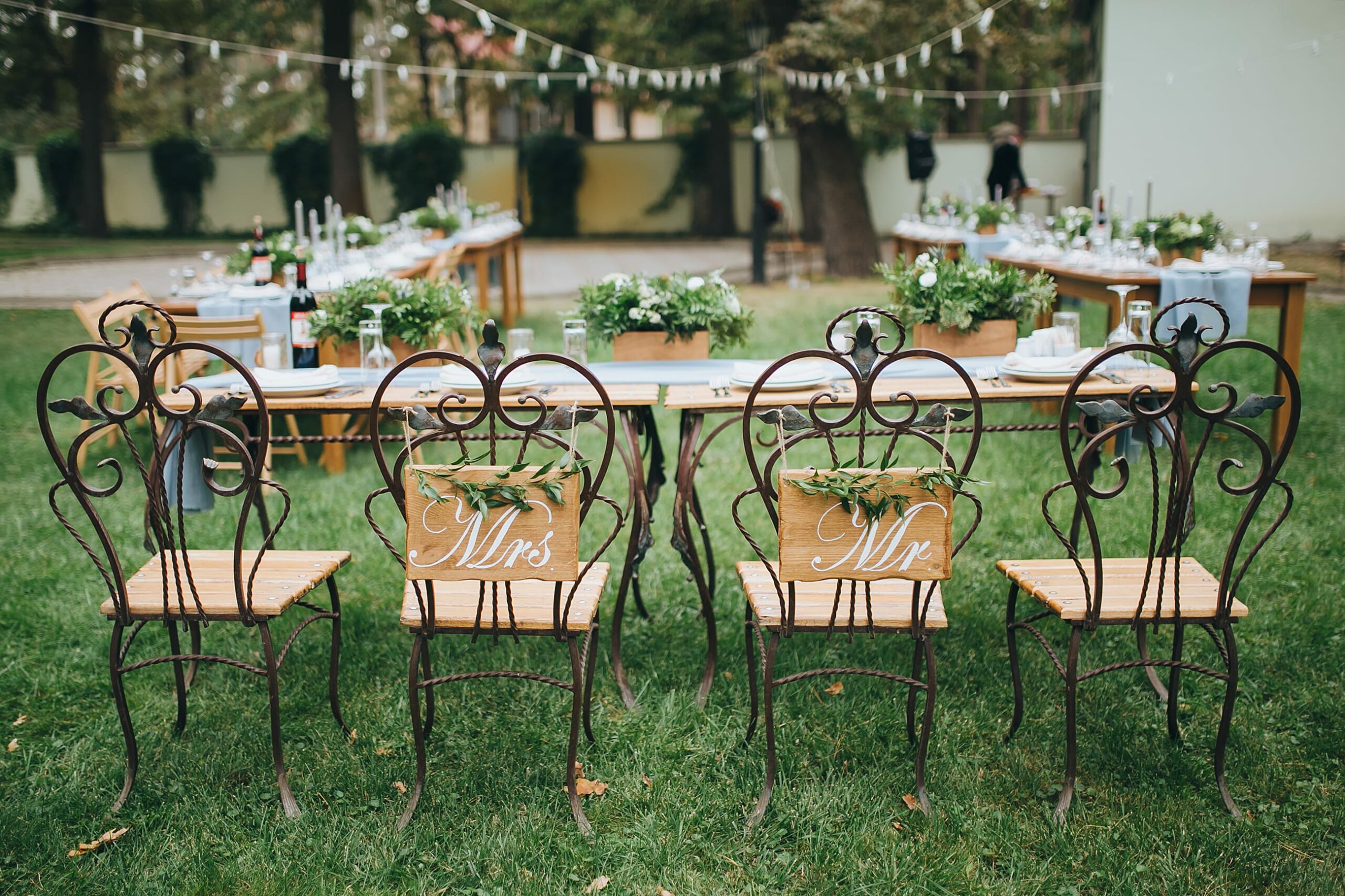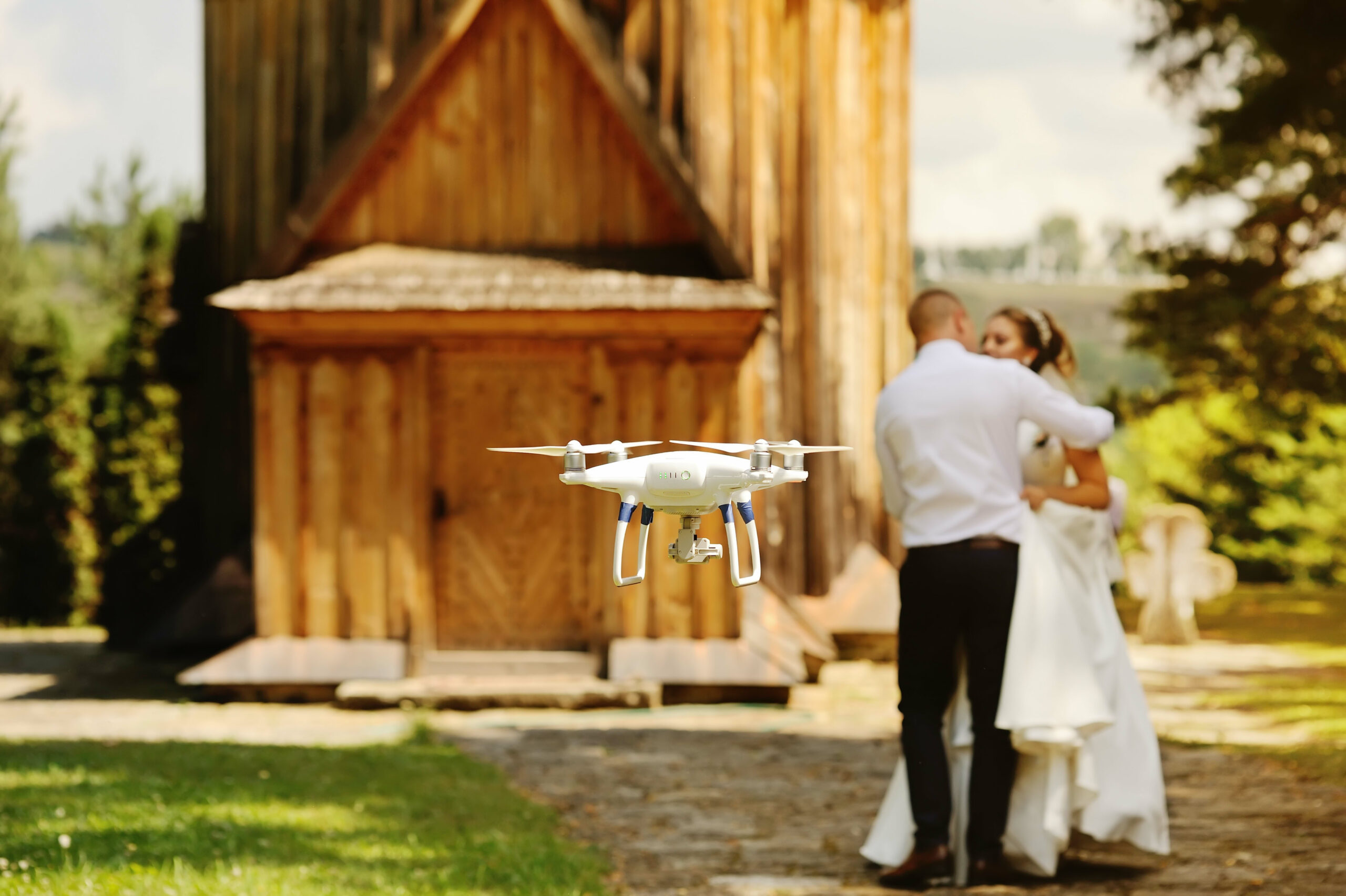Bridebook Business: Are we in the midst of a Wedding Industry Revolution?


It’s fair to say that technology and digital innovation has already changed pretty much every industry in some way, and the wedding industry is no exception.
Sure, we can blame ‘the rise of online’ for the outlandish requests we receive as wedding suppliers (I’d like a unicorn, please) or we can accept the challenges and opportunities it presents for us to develop our business, offer something new and drive the UK wedding industry to the next level.
Millennial couples today are presented with an abundance of choice when it comes to perusing wedding venues, photographers and themes (to name a few), and limitless information sharing between couples and wedding suppliers online opens us all up to the latest (and often most outlandish) trends that people are indulging in all around the world.
For couples, the pressure to achieve wedding perfection has intensified as a result of what is shared online because they can see what others have achieved on their big day and naturally, these ‘budget-less’ wedding ideals affect their own wedding expectations.
We seem to exist in a world of ‘wedding extremes’ more than ever before.
On the one hand, we have ‘the spenders’ who’re looking to compete with celebrity-esque wedding ideals. They want the great wall of white flowers showcased at Kim Kardashian’s wedding and the hair and makeup modelled by Michelle Keegan on her big day. On the other hand, we have ‘the savers’ who are rebelling against the idea that you have to spend a year’s’ salary to achieve your dream wedding. These guys aim to create a super modest, stripped back and trendy, low-key day.
It’s fair to say that the wedding industry is a great example of an industry in transition, spurred on by digital advancements and our natural, human responses to them as soon-to-be brides and grooms, and as suppliers too.
Many wedding venues and suppliers are embracing this change and are responding favourably to how the digital revolution has influenced how brides find inspiration, how couples find a venue, and how local wedding suppliers connect and communicate with each other and with newly (and even soon-to-be) engaged couples.
Here are 4 key areas of the wedding industry that we’ve identified as ‘in transition’ and which we think deserve our attention as wedding suppliers of tomorrow.
1.Are Couples expecting more because of social media?
In the experience of one of our very own ‘Bridebook’ bride-to-be’s, a discrepancy exists between what couples want from their wedding day based on what they find on social media, and what they can actually get from UK venues and suppliers.
This particular bride to be has been frantically saving pins and posts, and requesting decorations, tableware and dresses from UK wedding suppliers when to her dismay, she discovered that those products only existed in the US at present!
Increased social engagement from across the pond and the use of idea board tools (such as Pinterest) means that UK suppliers face increased pressure to stay innovative on a global level, and it helps to have an eye for trends that seem to be taking off before you’re even asked to cater to them.
Wedding suppliers have to get better at keeping up to date with wedding innovations and quicker at realising change and being able to deliver what couples of 2017 and beyond demand.
It is essential that suppliers are ‘present’ online in terms of advertising their services and monitoring trends. Social media is here to stay and we predict that it will only become more impactful for the wedding industry. Wedding venues in particular (but all suppliers in general) should invest in expert photography and post high-quality images to showcase their products or services online and to help garner greater interest from inspiration seekers.
Image pinning platform Pinterest commissioned a study in February 2017 which found that over 40 million people still “turn to Pinterest for guidance across the wedding planner journey” every year. This Pinterest study also states that 81% of engaged Pinners start planning their wedding on Pinterest before they’re even engaged.
This is proof that focusing your efforts on the ‘engagement’ stage of the client attraction funnel is key, and that if you grab the attention of people in this early ‘ideation’ stage you’re much more likely to convert them into bookings later on in the wedding planning process.
Being noticeable on Pinterest and Instagram, in particular, is proven to sell products in the longer term and garner attention from couples in the inspiration stage.
For further guidance on social growth, visit Bridebook Business Live on YouTube to find out how Bridebook.co.uk grew to 350,000 social media followers in just 12 months!
2.Innovative wedding venues
When our very own Bridebook Bride was planning her wedding, she drove for 35 hours around France to visit 11 venues within 5 days. But what if the venues she’d planned to visit had offered a detailed online look at their building and grounds? She would have been able to spend more quality time looking around a couple of shortlisted wedding venues and with greater intent to place a booking.
Websites with better quality galleries and a larger selection of images of their wedding venue will, of course, impress more couples than those which cannot offer a high quality first and second look during the decision-making stage.
In 2017 and beyond, it is essential that couples can peruse your venue easily, in a detailed fashion and from the comfort of their own home. Couples today will shortlist venues to view and make booking decisions based on what can be discovered and viewed online.
Over the next few years, more and more venue finder tools will exist online and if you fail to secure a presence you’ll fail to be discovered by couples and will, therefore, fail to receive bookings. Featuring your wedding venue on Bridebook is free and can help you get discovered and increase your business leads.
Beyond this, super savvy wedding venues like Brookfield Barn in West Sussex have begun to offer immersive online experiences that enable couples to take 3D virtual reality tours of their venue – helping both in the decision making process and in helping couples to organise their wedding online post-booking.
Imagine how much of a selling point it is for busy couples to be able to show their florist exactly where they’d like certain flowers positioned, digitally, saving all parties concerned a trip to the venue, and preventing wedding venue staff from having to take the time to accompany individuals around their building and grounds. This kind of digital-experiential wedding planning signals the future for the global wedding industry, not just the UK.
3. Live streaming
Many couples are also choosing to live stream their wedding day using tools such as Periscope and Facebook Live – enabling them to share footage of their big day in real time with those who couldn’t make it.
Wedding venues, in particular, should make the most of this trend and ensure that they have a social presence online; advertising the appropriate #hashtag or @handle to enable couples to tag them in live wedding day footage.
This is one of the quickest and easiest ways in which venues can add valuable media footage to their portfolio. It works as free advertising for the wedding venue in question; showing other engaged couples what a wedding at their venue could look like in reality.
4.The latest in wedding photography and videography
Gone are the days of digital cameras on dinner tables. Now the vast majority of couples will engage a professional photographer to capture their entire wedding day at an average cost of around £1,211.
Couples are placing greater importance on capturing their big day in style and are investing more time (and often money) in selecting the right wedding photographer AND videographer.
Do you specialise in both photography and videography?
If you specialise in one or the other, you may want to consider expanding, partnering with another supplier or upskilling to include both as an option in your product portfolio. Videography is fast becoming a wedding standard of the future, and if couples can select one supplier that offers both services at an improved package price, you’ll stand out in the online crowd.
Something you can also expect to be asked more frequently in 2017 and beyond is whether you provide the option to shoot using a drone. Yes, wedding drones! They’re really ‘taking off’ as a photography must-have in the weddings of tomorrow because couples are increasingly keen on having aerial videos and photos of all of their guests with their venue in the background.
Here are 10 of the best RC Drones with a camera if you’re keen to be seen as a forward thinking picture perfect supplier of the skies!
In the world of ‘image capturing,’ it is also worth considering the fact that wedding guests will also be acting as amateur photographers on your client’s big day, and organising digital photographs can be an arduous job for happy couples to face.
You could take your business one step further and depending on your budget and resource, consider offering photo montage services or even developing your own app similar to WedPics, that enables your client’s guests to upload all of their photos in one place. Offering automated ways for your clients to collect, organise and publish their pictures will put your business at a huge advantage in the wedding industry of tomorrow.
Are we in the midst of a Wedding Industry Revolution?
Absolutely, and it’s such an exciting time to exist in the UK wedding industry.
As with all businesses in all industries, those who fail to innovate and keep a finger on the pulse where the latest trends are concerned will struggle to compete for bookings over the coming years.
Be aware of what changes are happening around you because, in the fast-paced world of online, today’s news is tomorrow’s lesson.
Keep your Bridebook profile up to date and relevant by logging in and editing your Business Account HERE. Once updated, you will instantly increase your profile searchability and are able to connect with our community of 40,000 couples. In short, spend a little time adding photos, videos, and information you love about your business now, and benefit later!














